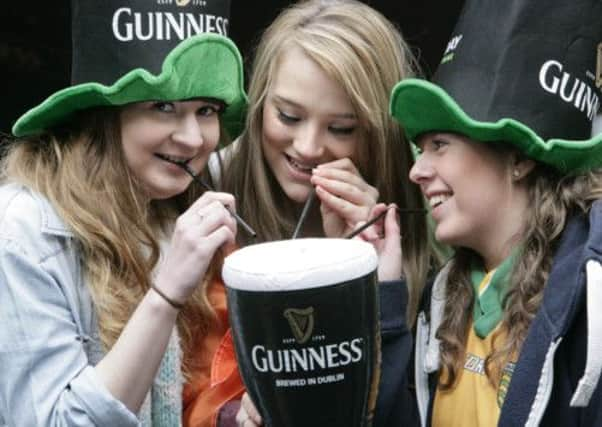Leaders: Another quiet St Andrew’s Day | Boris Johnson


Rather a lot of Scots don’t do very much to celebrate Scotland’s national day, apart from those living overseas who do much St Andrew’s Day dressing up in tartan, having dinners, a spot of dancing, and speeches.
The Scottish Government has been trying to stimulate interest. According to the Scotland Gateway website, there are “parties galore”. That we rather doubt. While there is a big all-day event in Edinburgh’s Grassmarket featuring the intriguing concept of silent ceilidhs, events elsewhere will fall well short of the number of suppers there are to celebrate Burns Night.
Advertisement
Hide AdAdvertisement
Hide AdDigging a bit deeper into the website in search of the “more than 170” fun-day events, most of them turn out to be 2-for-1 or child-goes-free ticket offers to visit historic houses and castles, or even pilates sessions. In a primly self-satisfied way, we rather approve of the national day being devoted to uplifting cultural activities and a bit of physical self-improvement rather than the somewhat debasing devotion to excess consumption of food and drink which can characterise national days.
But still, why is celebration of St Andrew at home so modest? It could be attributed to the weather. The beginning of winter is hardly conducive to spending lots of time outdoors. But then again, Hogmanay occurs midwinter, and everyone is capable of enjoying that just fine.
More likely, there is, with one exception, just no great tradition in the British Isles of celebrating patron saints’ days. St George’s Day in England passes to no great effect and there is only marginally more festivity associated with St David’s day in Wales.
The exception is St Patrick’s day, when rivers and beer get dyed green. This, however, has long been a religious feast day, commemorating when the saint brought Christianity to Ireland. That’s another problem. St Andrew never even came near Scotland, apart from maybe in death when a clutch of bones are claimed to have arrived at what is now St Andrews.
And the reason he is now the patron saint is most likely due to medieval political manoeuvring. As he was the brother of St Peter, adoption of him may have been seen by the powers of the time as giving Scotland greater clout in Rome, which isn’t a pressing need these days.
Of course, if you really want to give your national day big resonance, you time it to coincide with a big important anniversary, as the French do with July 14th and the storming of the Bastille, a pivotal event in the Revolution.
Obviously in the event of a Yes vote in next year’s referendum a day may well suggest itself for a Scottish National Day. But regardless of the consitutional issue there deserves to be a greater debate about such a day. Enjoy today, however you spend it.
Greed isn’t good
There is still no doubt that if money is what drives you, then banking is the business to be in. Big salaries – in the UK there were no fewer than 2,714 bankers earning more than £833,000 in 2012 – and even
Advertisement
Hide AdAdvertisement
Hide Adbigger bonuses – taking average total pay including pensions benefits for these top earners to
£1.6 million.
Yes, these people do live on the same planet. But they are paying no attention to what is happening in the world outside their luxuriously padded bubble. Where everybody else has to cope with pay which is at best static in real terms, their average pay went up by 35 per cent. Yes, that’s not a misprint, top bankers’ pay went up by more than a third. And these are the people who have impoverished millions of lives.
Granted, most of these top-earners work for foreign banks. The top people at Britain’s partly state-owned monoliths, especially Lloyds, are at the lower end of this league of excess. Nevertheless, the European Banking Authority statistics, from which the earnings figures come, also show that this pay profligacy is mainly a City of London problem, three-quarters of Europe’s financial industry plutocrats working there.
The utterly staggering pay increase figure also shows that this is a problem which is getting worse. Why is it a problem? Mainly because innumerable analyses of the financial crash have shown that far too many bankers were fixated on boosting their own incomes at the expense of what used to be normal prudent banking with the dire consequences we all know about.
The UK government needs to get a grip of this. Who knows what crises are now being brewed by this renewed pursuit of greed.